The big problem with teen sexting, which is far more common than people realise
There’s a lot at stake for Australian teens who engage in sexting, which is more common than people think — and a big one is a criminal conviction.
Research shows about one-third of Australian high-schoolers have sent a sexually explicit image or video of themselves to a girlfriend, boyfriend or peer.
The Australian Research Centre in Sex, Health and Society at La Trobe University conducts a national survey every five years exploring the behaviours of secondary students.
Last year’s data shows sexting is much more common than parents and teachers realise, relationship counsellor and sex education expert Tessa Opie said.
“The research shows that one-third of students in years 10, 11 and 12 have shared images with a boyfriend, girlfriend or friend, that’s a nude or nearly nude image of video,” Dr Opie said. “Half of those students indicated they had received sexually explicit text messages.”
That’s a lot of young people putting themselves in potentially problematic situations where privacy can be breached — and more than that, some very serious laws.

It’s a topic explored in the new Australian drama The Hunting, starring Asher Keddie and Richard Roxburgh, which premieres on SBS tonight, and for which Dr Opie acted as a consultant.
The show centres on a group of teenagers and their teachers and families in the midst of a sexting scandal, where nude photos of students are shared around.
“It’s a very different time to be growing up and developing as sexually autonomous people,” Dr Opie said.
“I think a lot of people make the assumption that technology is what makes sexuality and sexual development frightening these days, but I’m of the opinion that it’s less about the tech and more about our values as people.
“Technology is being used kindly by kind people and will be used less kindly and with less kind intentions by those who aren’t kind. It’s really easy to be awful.”
RELATED: Sexting normal for teens, according to Ditch the Label report

Sharing explicit images received from someone else is a scenario that has played out in some pretty public examples. Those instances are treated seriously by authorities.
But even if there’s no malicious sharing, merely being in possession of an explicit image could throw up some complex legal consequences.
“I don’t have a legal background, but broadly speaking, we know that anyone under the age of 18 can’t legally agree to take part in sexting in (almost all states),” Dr Opie said.
“And so, it can be classed as child pornography or child exploitation material. It’s then illegal to produce, ask for or keep that material because it’s classed as child porn.”
The potential for disaster exists because teenagers are at a stage developmentally where they aren’t necessarily considering the impact and consequences of their actions, she said.
“They’re often acting on impulse,” Dr Opie said.
“I think instances where these images are shared is vastly under-reported but we also can’t assume that images are frequently being uploaded to websites for mass public consumption. I think it occurs more often in the context of showing a friend rather than forwarding it on.”
RELATED: Teen sexting decriminalised between partners of ‘similar age’ in NSW
Even so, the law has a serious view of explicit material involving underage people, she said. And that’s a reality few young people understand.
When Dr Opie speaks at school, she’s often met with horror when she explains to teenagers what the legal definition of child exploitation material is.
“Essentially, it’s any sexually explicit or suggestive picture of video of a young person, or something that has been produced or viewed in the presence of a young person.
“Young people don’t have a comprehensive understanding of sexting and the ramifications, and I think that’s a problem.
“Schools aren’t having these conversations because they either don’t feel confident to do so or they’re not equipped with the knowledge and tools to do so.
“Teachers still feel uncomfortable these types of conversations. Parents don’t either, or they’re not aware this is occurring as much as it is.”
Alex Cusack plays the character of Andy Luke in The Hunting, who is one of the students at the centre of the nude photo scandal.
Even though he’s only 19 and it’s not too long ago he was at school himself, Cusack said he had to return to the headspace of a 16-year-old.
“I had to try to relate to the expectations set on Andy, which were similar to the ones set on me, and are probably very similar for any 16-year-old guy growing up,” Cusack said.
Although he added: “That’s not to say that I had pressure to upload photos of young women on a website. But the pressure to be cool, that dynamic among young men.”
Dr Opie said that dynamic is likely one of the main motivators of the recipient of an explicit image sharing it with others.
“I think young people are tempted to show their friends if they have an explicit photo of someone they know, someone in their class. It might be an opportunity in their minds to impress their peers.”
RELATED: The Hunting will make you feel the heat of your own anger
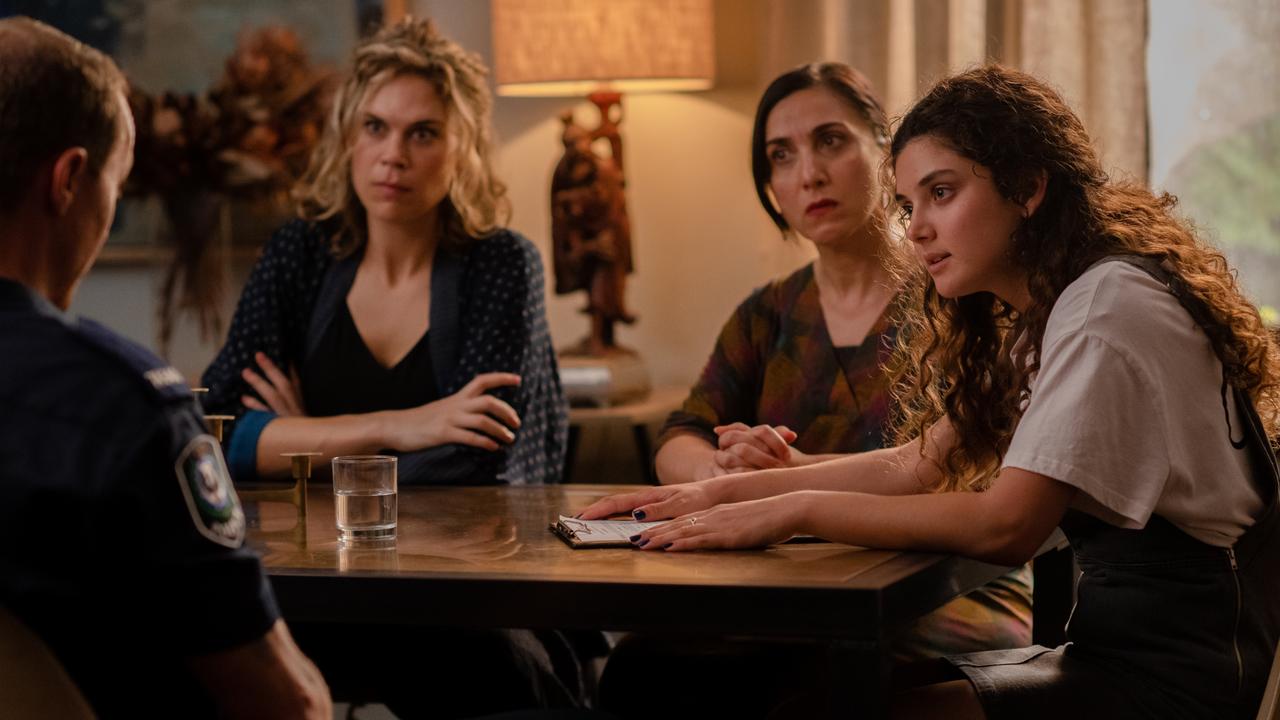
As the show explores, the response from adults when these situations blow up is usually one of “panic and moral outrage”.
“This is a more pragmatic and level-headed conversation about it instead,” Dr Opie said.
“It also highlights the ongoing victim-blaming culture that surrounds sexting, and more specifically the illegal distribution of someone’s intimate image.
“Rather than asking why a young person might take the image for someone, it’s more productive to acknowledge that young people are sexting and we need to look at the human element of it. The focus should be on consent and respecting people’s privacy.”
They’re conversations that should be had, she said, given how common and problematic the issue of teen sexting is.
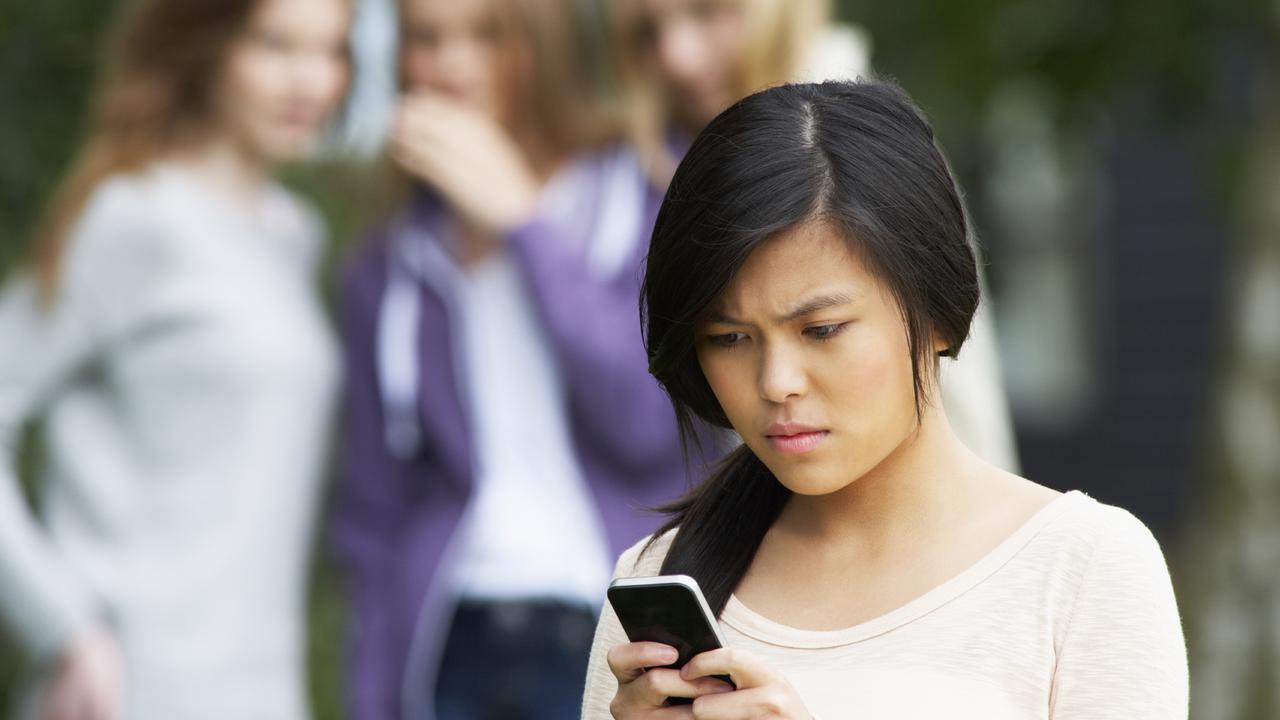
Cusack agreed, after having spent a lot time with teenage actors and extras, as well as real-life education professionals.
“I got to speak to a teacher at one of the schools we filmed in and they said they’re dealing with these issues on an almost daily basis, trying to manage them while also teaching. Their jobs are so difficult.
“Technology is more or less an extension of young people’s sexuality, for better and for worse.”
The Hunting begins tonight at 8.30pm on SBS




